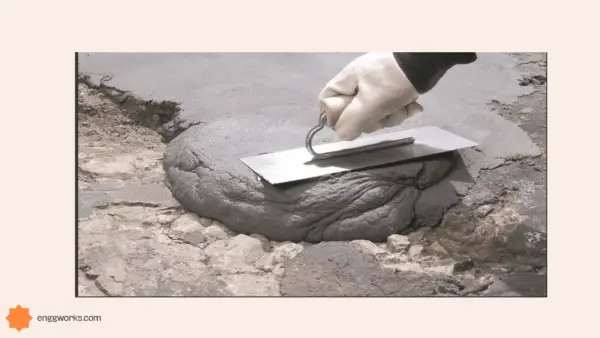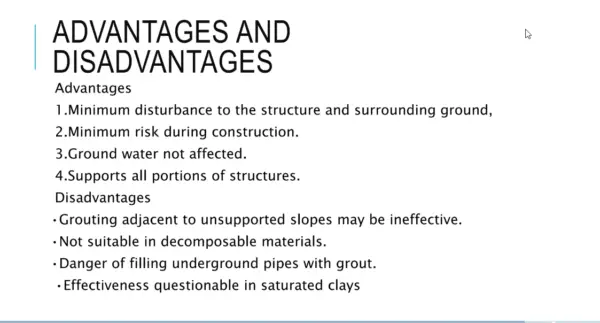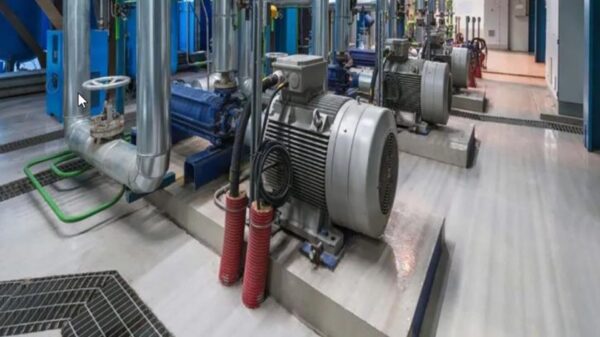Jet grouting is an innovative geotechnical construction technique allowing targeted ground improvement and foundation formation.
The method involves using a specialized jet grouting plant with a high-powered drill that erodes and mixes soil with a customized cementitious grout pumped at extremely high pressures.
A jet grouting plant is a key piece of equipment used in jet grouting, an advanced foundation engineering technique.
This creates structural jet grouting piles or walls by consolidating and strengthening the ground.
By optimizing the jet grouting equipment and tailored cement mixes, contractors can provide reinforced soil foundations, excavation support, slope/tunnel stabilization, permeation grouting, karst treatment and other geotechnical solutions.
Jet grouting strengthens and waterproofs soil by constructing structural elements using a high-powered drill and concrete slurry.

Jet Grouting Equipment Manufacturers
There are several major jet grouting equipment manufacturers supplying plants to contractors around the world.
These include Bauer, Trevi, Soilmec, Casagrande, Liebherr, and others. Key jet grouting rig components include the drill rig, grout mixing plant, grout pumps, post-circulation skid, and automated control systems.
Manufacturers offer different drill rig configurations and capabilities to suit varied geotechnical needs.
Casagrande crawler drill rigs and Bauer BC post-circulation skids are common in large-scale jet grouting projects needing high pressure and output.
Compact, truck-mounted rigs like Soilmec’s SMJ series facilitate smaller urban jobsites.
Jet Grouting Drill Rigs
New rigs from top brands ensure ideal specifications for jet grouting but carry higher prices.
Used foundation drill rigs can provide significant cost savings while still meeting performance needs with proper inspection and retooling.
Verifying the drill’s hydraulic flow rate, reversing capacity, torque, and pull-down force are critical when assessing used JG rigs.
OEM support for maintenance and parts is also key point. Commonly used rigs include various Bauer, Casagrande, Soilmec, and other models ranging from $250,000 to $750,000 based on age, size, features and condition.
Jet Grouting Construction Process
The jet grouting construction process involves drilling down to design depth, then injecting high-velocity grout while slowly withdrawing the rods.
This fluidizes and replaces the soil, leaving a column of soil-cement mix cured in ground.
Small diameter pilot holes locate utilities and obstacles before production drilling commences. Rebar cages can be inserted into the holes as well.
Single, double, and triple fluid jet grouting techniques use air and fluids to erode soil and improve mixing. Columns may be constructed individually or overlap in rows to form walls or blocks.

Jet Grouting Pile Design
Proper jet grouting pile design requires determining the pile diameter, depth, spacing, layout, and strength requirements to support the planned structure under static and seismic loads.
Design typically aims to achieve specified grout/ground interaction and minimum compressive strength like 2 MPa. Verification testing via core sampling analyzes achieved strengths.
Computer modeling and simulation tools like SIGMA/W and PLAXIS analyze complex load distributions in jet grouted foundations.
Jet Grouting Foundation Cost
Jet grouting foundation cost depends heavily on local site conditions like soil type/strata, groundwater level, column diameter and spacing, drilling production rates, crew/equipment mobilization fees, and other factors.
As a rough estimate, costs typically range $100 – $300 per cubic meter of treated soil, with economy of scale on larger foundation work.
Complex urban sites and contamination remediation can drive costs higher. Software tools like Trimble’s JetGrouting Package improve estimating productivity.
Jet Grouting Mixing Plant
The jet grouting mixing plant combines water and cementitious materials like Portland cement to produce the high-fluidity grout injected at up to 100 m/s velocities.
Batch plants allow recipe adjustment per soil conditions. Common configurations include:
- Colcrete CJG continuous mixing plants
- MAI MJS jet grouting systems
- Trailer-mounted custom plants by BMCS, Power Jet, and others
Rigorous quality control testing of the jet grout per published standards ensures suitable injectability, strength gain, and set times.
Adding bentonite, accelerators, or other admixtures caters the mixed grout to site needs.
Jet Grouting Cement Mixes
Jet grouting cement mixes must balance fluidity for soil erosion, strength development, and set time.
Portland cement content commonly ranges 500 – 650 kg/cubic meter grout. This cement-rich mixture fluidizes soil but prevents uncontrolled dissipation.
Single fluid systems often use only cement, water, and admixtures.
Double fluid adds air for improved soil loosening, requiring foam stabilizers.
Triple fluid uses air and another fluid like polymers for even greater jet dispersion and soil mixing. Site trials inform the grout design.
Conclusion
Jet grouting is an advanced foundation construction technique suitable for challenging soils and sites.
The specialized jet grouting plants enable targeted ground modification and foundation formation via high pressure injection of an engineered grout.
Understanding the equipment, process, design methods, costs, and applications facilitates effective use of this soil strengthening technique.






